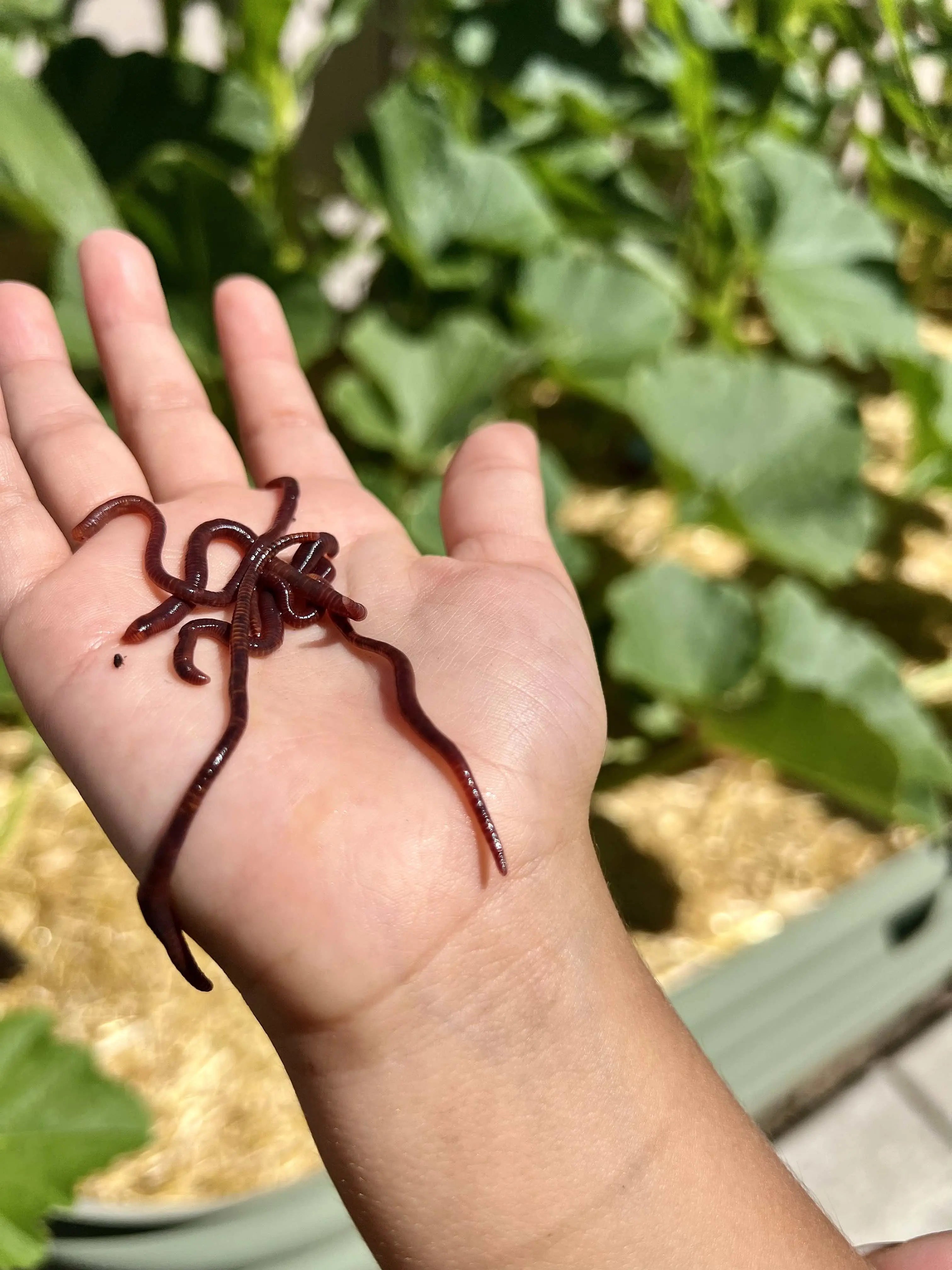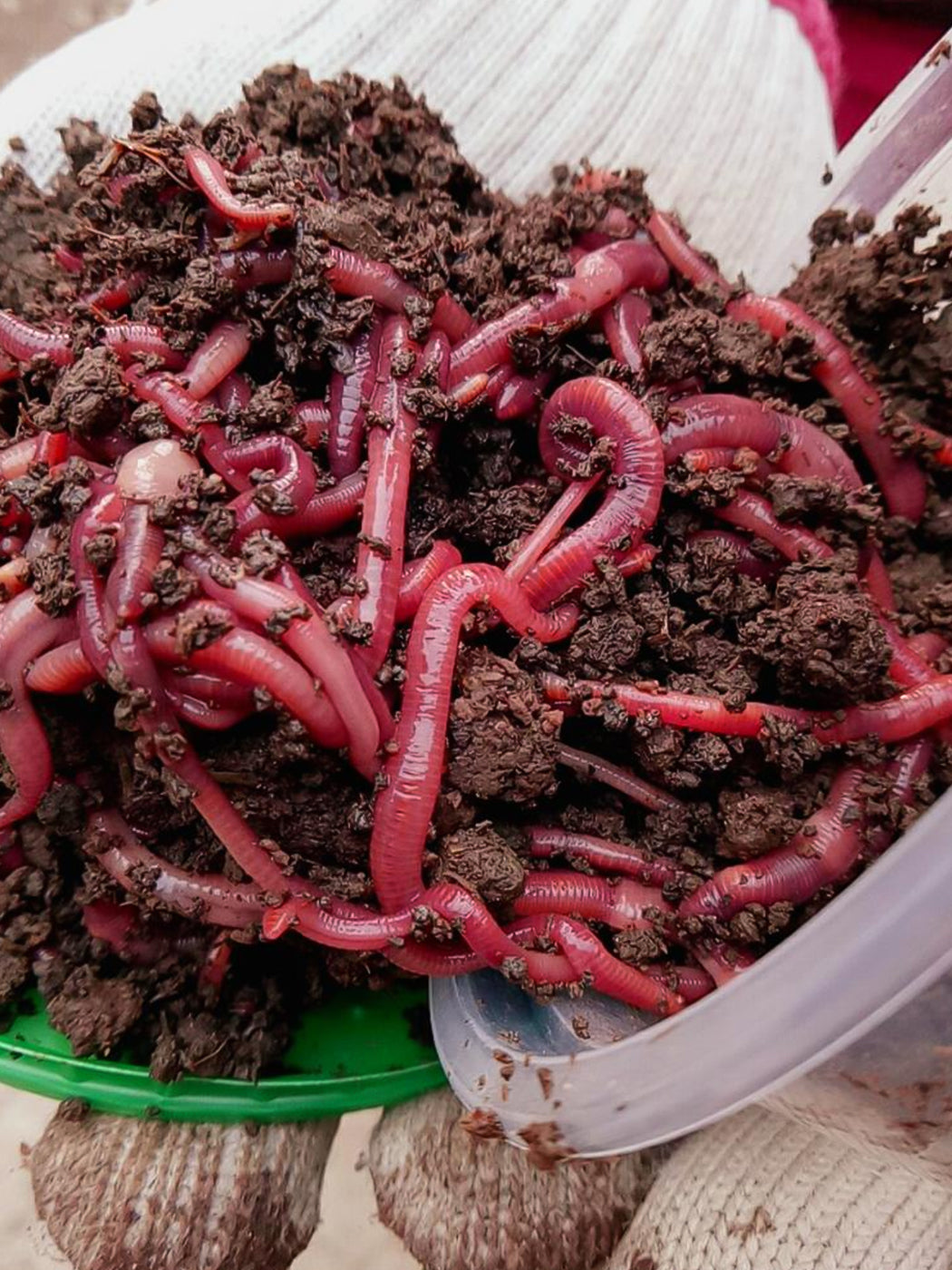Achieve a Beautiful Lawn Using Lake Hickory Bait Lawn Care Resources
Achieve a Beautiful Lawn Using Lake Hickory Bait Lawn Care Resources
Blog Article
Red Wigglers 101: Whatever You Required to Know for Thriving Gardens
Red wigglers, or Eisenia fetida, play a critical role in sustainable horticulture practices, serving as reliable decomposers that transform organic waste into useful vermicompost. Recognizing their habitat, nutritional choices, and the myriad benefits they provide can change your horticulture approach.
Understanding Red Wigglers

Red wigglers thrive in environments rich in natural product and moisture. Red Wiggler Express. They possess a special gastrointestinal system that allows them to refine food scraps rapidly, secreting spreadings that are loaded with essential nutrients such as nitrogen, phosphorus, and potassium. These castings improve soil structure, boost water retention, and foster valuable microbial activity, all of which add to durable plant wellness
Furthermore, red wigglers can endure in diverse problems, making them adaptable to different gardening practices, consisting of indoor and outside composting systems. Their capacity to consume huge amounts of organic waste everyday settings them as beneficial allies for both home gardeners and commercial growers. By including red wigglers into horticulture efforts, one can substantially boost dirt fertility and assistance sustainable horticulture methods.
Ideal Environment for Red Wigglers
Creating an ideal atmosphere for red wigglers is crucial for maximizing their composting capabilities and total wellness. Red wigglers flourish in moist, dark, and well-aerated environments, which very closely resemble their native environments in ground cover and rotting organic matter. A suitable environment ought to supply a temperature level range between 55 ° F and 77 ° F(13 ° C to 25 ° C), as extreme temperatures can emphasize or hurt the worms.
The bed linens material, such as shredded paper, cardboard, or coconut coir, must be maintained wet but not extremely wet, as extreme wetness can result in anaerobic problems destructive to worm health. In addition, a pH degree between 6.0 and 7.5 is suitable, making certain a balanced setting.
Correct aeration is similarly crucial; it permits for oxygen blood circulation and protects against the buildup of dangerous gases. A container or bin developed for vermicomposting ought to have drain openings to eliminate excess moisture and promote airflow. Routine tracking of these conditions is vital for maintaining a prospering red wiggler populace, ultimately enhancing their efficiency in breaking down natural waste and improving garden dirt.
Dietary Demands and Preferences

Red wigglers show particular choices; they are especially keen on softer, disintegrating materials over harder or more fibrous substances. It is necessary to avoid feeding them citrus peels, onion, and garlic in huge quantities, as these can be hazardous. In addition, meat, dairy products, and oily foods ought to be left out, as they can draw in parasites and develop unpleasant smells.
(Charlotte NC Worms For Sale)Environment-friendly materials, such as vegetable scraps, offer nitrogen, while brownish products, like cardboard and dried leaves, supply carbon. By catering to their dietary requirements, gardeners can foster a flourishing populace of red wigglers in their garden compost systems.
Benefits of Utilizing Red Wigglers
The impressive advantages of using red wigglers in gardening prolong much beyond their role in composting. These functional microorganisms add considerably to dirt wellness, boosting vitamins and mineral availability and promoting microbial task. By freshening the dirt as they delve, red wigglers boost drain and root infiltration, creating an optimal atmosphere for plant growth.
Moreover, red wigglers are effective recyclers of organic waste, transforming it right into nutrient-rich spreadings that act as an exceptional natural plant food. These spreadings include beneficial microbes and necessary nutrients, such as nitrogen, phosphorus, and potassium, which are essential for plant advancement. The slow release of nutrients from worm spreadings makes certain a consistent supply, decreasing the danger of nutrient leaching and advertising lasting horticulture techniques.
Using red wigglers fosters a much more sustainable gardening technique by reducing reliance on chemical fertilizers and promoting a closed-loop system, where waste is changed into beneficial sources. On the whole, including red wigglers into gardening methods uses a plethora of ecological and farming benefits.
(Hickory NC Worms For Sale)
Composting With Red Wigglers

To launch a successful vermicomposting system, pick a suitable container with correct air flow and drain. The excellent environment for red wigglers includes a damp, dark setting with temperature levels in between 55 ° F and 77 ° F. Begin by layering shredded paper, cardboard, and food scraps, making sure a balanced mix of carbon and nitrogen-rich materials.
Red wigglers flourish on vegetable peels, fruit scraps, coffee grounds, and eggshells, while staying clear of meat, dairy, and oily foods that can bring in pests. Frequently monitor moisture degrees; the bedding needs to perspire yet not soaked. Harvest worm castings every few months by dividing the worms from the garden compost, which can after that be used straight in yards or stored for later usage.
Implementing vermicomposting not only minimizes landfill waste however likewise improves yard dirt, promoting healthy and balanced plant development and lasting horticulture techniques. Welcome this environmentally friendly method to enhance your gardening undertakings.
Verdict
In recap, red wigglers are important microorganisms for boosting yard performance via effective composting. Their certain environment demands, dietary preferences, and considerable benefits contribute to lasting gardening methods. By utilizing red wigglers, gardeners can considerably enhance dirt top quality and nutrient accessibility, promoting much healthier plant growth. Welcoming the practice of vermicomposting not only supports waste reduction yet also promotes an environmental equilibrium within yard ecosystems, eventually leading to growing and resilient gardens.
Report this page